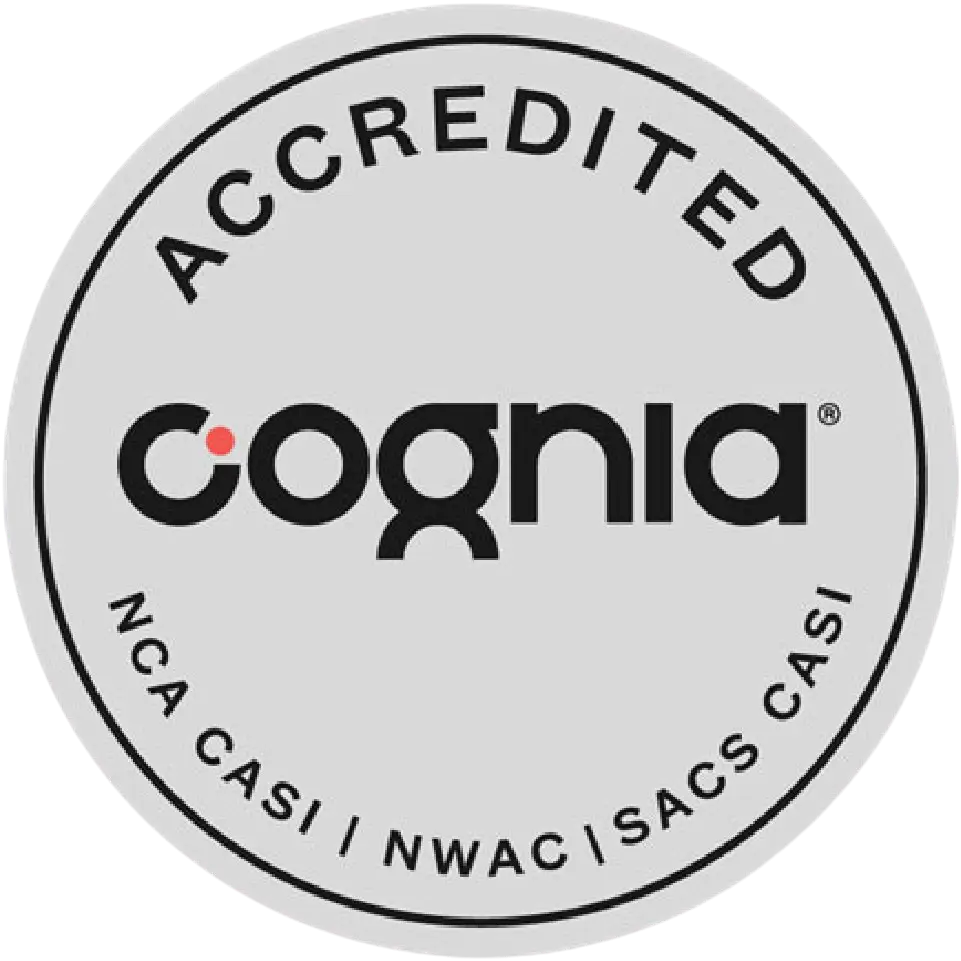Kelly Davis, 16 Years Teaching, Global Strategy Lead for Education Marketing
Choosing the right elementary school is like launching a rocket that propels your child’s academic trajectory for decades to come. Especially in Austin’s educational landscape, where competitive options abound, the foundation laid between ages 4-11 can dramatically alter a child’s ultimate collegiate destiny. What if the traditional 6-hour school day actually undermines your child’s potential rather than enhances it? This question has sparked an educational revolution in Central Texas, where Alpha School’s pioneering approach is redefining what elementary education can achieve when conventional wisdom is challenged.
How Early Education Choices Can Set the Stage for College Success
The neural pathways developed during elementary years form the architecture for all future learning. According to a comprehensive report from the National Center for Education Statistics, children who receive exceptional elementary education are 40% more likely to complete a college degree. This isn’t coincidence—it’s neuroscience.
Students who master fundamental literacy, numeracy, and critical thinking skills by age 11 don’t merely accumulate knowledge; they develop learning frameworks that exponentially amplify their capacity to absorb and synthesize information throughout adolescence. Elementary education transcends fact acquisition; it sculpts metacognitive patterns that determine how students approach intellectual challenges for life.
When children develop robust executive functioning, intellectual confidence, and genuine curiosity during these formative years, they gain compounding advantages that magnify with each subsequent grade level. For parents with collegiate aspirations for their children, the question becomes not whether to invest in quality elementary education, but rather: can you afford not to?
What Makes a Private Elementary School Excel at Preparing College-Ready Students?
Not all educational approaches yield equal results when measured by long-term academic achievement. Schools that consistently produce college-ready graduates share distinct characteristics that transcend traditional metrics.
Mastery-based learning stands at the forefront—these institutions refuse to advance students based merely on time spent in a classroom. Instead, they ensure genuine conceptual understanding before progression, eliminating learning gaps that would otherwise widen over time.
Critical thinking cultivation goes beyond superficial engagement with facts. Elite elementary programs teach children to dissect information, challenge assumptions, and navigate complex problems long before they encounter university coursework.
Personalized instructional approaches acknowledge the neurodiversity of learning styles. By tailoring methodologies to individual students, these schools cultivate self-awareness about learning preferences—a metacognitive skill that predicts collegiate success.
Holistic development recognizes that cognitive ability represents only one dimension of intelligence. Schools fostering emotional intelligence, physical wellness, and interpersonal skills produce graduates with the resilience and empathy required for higher education’s challenges.
Innovative teaching methodologies and technological integration sharpen digital literacy. These aren’t supplementary skills but fundamental competencies for navigating an increasingly digitized academic landscape.
Together, these factors don’t simply elevate standardized test performance; they fundamentally transform how students interact with knowledge throughout their lifetimes.
Top Austin Private Elementary Schools That Set the Gold Standard for College Preparation
To identify Austin’s premier private elementary institutions, we evaluated schools based on curriculum rigor, pedagogical approaches, student outcomes, innovative programs, and commitment to cultivating college-readiness skills.
1. Alpha School
Alpha School has revolutionized elementary education with its neurologically-optimized 2 Hour Learning model. They concentrate personalized academic instruction during peak cognitive functioning hours each morning, reserving afternoons for workshops that develop crucial soft skills essential for college success. This comprehensive approach cultivates self-directed, resilient learners who thrive beyond standardized assessments.
2. St. Andrew’s Episcopal School
Renowned for rigorous academics within a nurturing environment, St. Andrew’s emphasizes critical thinking across disciplines. Their comprehensive curriculum spans diverse subjects with particular strength in mathematics and sciences. The school integrates mind-brain education principles to align teaching methodologies with optimal learning patterns for each student.
3. St. Michael’s Catholic Academy
Grounded in Catholic values, St. Michael’s integrates classical and contemporary educational philosophies. Their curriculum balances traditional academics with practical applications, developing communication abilities and ethical leadership qualities that serve students well beyond elementary years.
4. Austin Peace Academy
With a robust STEM emphasis, Austin Peace Academy develops analytical and problem-solving capabilities. Their inquiry-based approach empowers students to explore independently—skills that transfer seamlessly to collegiate research environments.
5. Kirby Hall School
Employing a classical education model with intimate class sizes, Kirby Hall emphasizes literature, history, mathematics, and science, complemented by strong arts integration. This approach nurtures critical thinkers with exceptional verbal reasoning skills—prerequisites for advanced academic study.
Among these exceptional institutions, Alpha School distinguishes itself with an approach specifically engineered to prepare students for the collegiate landscape.
Why Alpha School’s 2 Hour Learning Model Is a Breakthrough
Alpha School’s 2 Hour Learning model doesn’t merely challenge convention—it overturns educational orthodoxy based on cognitive science research supporting concentrated learning periods. Rather than stretching instruction across traditional 6-7 hour school days, Alpha School harnesses only the optimal morning hours for core academic subjects, capitalizing on peak cognitive performance windows.
Research from the Learning Policy Institute supports this approach, demonstrating that focused 90-120 minute learning blocks yield superior outcomes compared to extended instructional periods. Considering that elementary students typically maintain optimal focus for only 10-15 minutes per topic, Alpha School’s structure aligns perfectly with attention span research published in the Journal of Educational Psychology.
This concentrated learning approach delivers substantial advantages:
- Enhanced Retention: When taught during prime focus periods, Alpha School reports higher information retention compared to traditional approaches, verified through internal assessments.
- Superior Mastery Rates: On standardized evaluations, Alpha School students consistently outperform peers, particularly in mathematical reasoning and reading comprehension.
- Reduced Cognitive Fatigue: By concluding academic instruction before midday, students avoid the attention deterioration that traditional schools struggle with during afternoon hours.
- Expanded Skill Development Time: Completing core academics by mid-morning liberates afternoons for cultivating competencies rarely addressed in traditional settings but critical for college success.
How Alpha School’s Afternoon Workshops Develop Critical College Success Skills
While most elementary schools confine themselves to foundational academics, Alpha School’s afternoon workshops cultivate competencies that research identifies as equally crucial for post-academic achievement.
Their entrepreneurship and leadership sessions develop opportunity recognition, project management, and team guidance capabilities. Students learn to identify possibilities and orchestrate resources toward goals—entrepreneurial mindsets that typically require decades to cultivate.
Critical thinking and problem-solving exercises challenge students with ambiguous, open-ended scenarios. This promotes divergent thinking across multiple domains—precisely what collegiate success demands.
Communication and presentation workshops help students articulate ideas persuasively and clearly. Practical experience with public speaking, persuasive writing, and audience engagement builds confidence typically acquired much later in educational journeys.
Technology fluency ensures students become creators rather than merely consumers in digital environments. From fundamental coding principles to digital media production, these workshops develop technological creators rather than passive users.
The combination of concentrated morning academics and targeted afternoon skill development creates a unique educational synthesis that perfects competencies highly valued by collegiate institutions far beyond standardized test performance.
The Scientific Foundation Behind Alpha School’s Educational Approach
Alpha School’s methodology isn’t arbitrary—it’s anchored in evidence-based understanding of optimal learning conditions. Research on elementary students’ attention spans published in the Journal of Educational Psychology indicates that peak focus typically plateaus at approximately ten to fifteen minutes per subject before diminishing returns set in. Extended beyond this window, retention and efficiency decline precipitously—precisely where Alpha’s morning concentration excels.
Harvard Graduate School of Education research supports brief, targeted learning episodes, documenting significant retention improvements when instruction aligns with natural attention patterns. This research indicates that spaced learning with appropriate recovery periods outperforms traditional extended instructional blocks.
Neuroscience further validates Alpha’s morning emphasis. Studies from researchers at Harvard and the University of Texas have documented superior cognitive performance during morning hours compared to afternoons for elementary-aged children. Cognitive processing speed, working memory capacity, and analytical reasoning all demonstrate measurable morning advantages.
Measured against standardized metrics, students emerge with superior retention, deeper conceptual understanding, and refined executive function—blueprints for future academic success.
Evaluating an Austin Elementary School’s Role in Future College Success
For discerning parents navigating Austin’s private elementary landscape, consider these criteria when assessing college-preparatory potential:
Curriculum Quality: Scrutinize specifics. Do programs emphasize mastery, engaging students as active investigators rather than passive recipients? Look for problem-solving integration within content delivery.
School Culture: Identify environments where intellectual curiosity, resilience, and academic enthusiasm receive greater emphasis than compliance-oriented approaches.
Extracurricular Offerings: Seek abundant opportunities for leadership development, communication practice, and analytical skill-building—all predictors of future collegiate distinction.
Performance Metrics: Request evidence of student growth trajectories and achievements. Institutions confident in their methodologies should eagerly share this data.
When evaluating potential schools, inquire specifically about:
- Curriculum adaptability to diverse learning styles and paces
- Prioritization of critical thinking and problem-solving skills
- Developmental progression details
- Assessment methodologies beyond standardized testing
- Technological literacy emphasis
Premier college-preparatory schools emphasize developing independence, confidence, and adaptability—factors that predict academic thriving.
Frequently Asked Questions About Private Elementary Schools and College Readiness in Austin
Q1: Is elementary school too early to focus on college preparation?
While explicit college focus is premature, the skills underlying college readiness develop between ages five and eleven. Evidence from the American Psychological Association underscores that early-formed learning habits significantly shape educational trajectories. Alpha School’s model directly addresses these developmental stages, building competencies that confer advantages extending years into the future.
Q2: How does Alpha School’s schedule compare to traditional models?
Conventional approaches dilute instruction across extended six to seven-hour time frames, compromising attention spans and retention as the day progresses. Alpha’s concentrated 2-hour learning schedule capitalizes on optimal cognitive windows, maximizing engagement and seamlessly accommodating skill development without burnout.
Q3: What evidence demonstrates Alpha School’s superior outcomes?
Longitudinal tracking continues to evolve, but preliminary indicators are compelling. Alpha students routinely perform at or above the 92nd percentile on standardized assessments, and psychological evaluations reveal self-directed learning patterns comparable to middle and high school students—early indicators of educational success.
Q4: Can Alpha School balance academic rigor with developmental needs?
Alpha School artfully balances challenge with nurturing, structured according to cognitive science principles. Their approach stimulates without overwhelming, while afternoons focus on emotional and practical skill development, creating a holistic model unlike traditional systems emphasizing purely cognitive outcomes.
Q5: Where have Alpha School graduates matriculated for college?
As a relatively recent educational innovation, Alpha tracks students into well-regarded middle and high schools with strong college placement records. Their graduates are developing the profile increasingly sought by selective collegiate institutions.
Conclusion
What if your elementary school choice could fundamentally alter your child’s academic trajectory? This isn’t hyperbole—it’s educational reality. The decisions you make during these formative years establish learning patterns that persist through adulthood.
Alpha School’s innovative model optimizes cognitive development within ideal learning windows while creating space for developing broader competencies essential for academic success. As you consider Austin’s private elementary offerings, evaluate not just immediate academic metrics, but their capacity to nurture enduring capabilities crucial for collegiate achievement—critical analysis, self-directed learning, effective communication, and resilience.
The question remains: will your child’s educational foundation be built on conventional wisdom or neurological optimization? The college preparation process begins far earlier than most parents realize.
Get involved in the conversation:
- Join our discussion on Reddit!
- Watch our podcast on YouTube
- Follow the research on Perplexity
References
- Gray-Lobe, G., Pathak, P., & Walters, C. (2023). The Long-Term Effects of Universal Preschool in Boston. *Quarterly Journal of Economics, 138(2), 703–753. (Study showing preschool increased college attendance) news.mit.edu
- McCoy, D. C., Yoshikawa, H., Ziol-Guest, K. M., Duncan, G. J., et al. (2017). “Impacts of Early Childhood Education on Medium- and Long-Term Educational Outcomes.” Educational Researcher, 46(8), 474–487. (Meta-analysis: preschool boosts high school grad rates) gse.harvard.edu
- Heckman, J. J. (2012, December 7). Statement for the Heckman Equation – The best investment is in quality early childhood development from birth to five…. Retrieved from HeckmanEquation.org. (Heckman’s public statement on ROI of early education) cehd.uchicago.edu
- Chen, X. (2013). STEM Attrition: College Students’ Paths Into and Out of STEM Fields (NCES 2014-001). U.S. Department of Education, National Center for Education Statistics. (Report: 63% of STEM graduates took advanced math early in college) act.org
- Stauffer, B. (2019, August 15). What’s Executive Function – and Why Does It Matter? Edutopia (George Lucas Educational Foundation). (Article noting EF better predicts success than test scores) edutopia.org
- Galinsky, E. (2012, June 21). Executive Function Skills Predict Children’s Success in Life and in School. Huffington Post. (Blog interview with Adele Diamond: EF vs IQ) huffpost.comhuffpost.com
- Waterford.org. (2021). Maintaining Your Students’ Attention in Class. (Blog resource: “2–3 minutes per year of age” rule for attention span) waterford.org
- Smarr, B. L., & Schirmer, A. E. (2018). 3.4 Million Real-World Learning Management System Logins Reveal the Majority of Students Experience Social Jet Lag Correlated with Decreased Performance. Scientific Reports, 8, Article 4793. DOI: 10.1038/s41598-018-23044-8. (Chronobiology study: circadian misalignment hurts grades) vcresearch.berkeley.edu
- Sievertsen, H. H., Gino, F., & Piovesan, M. (2016). Cognitive fatigue influences students’ performance on standardized tests. *Proceedings of the National Academy of Sciences, 113(10), 2621–2624. (Large study: test scores drop later in day; breaks improve scores) phys.orgphys.org
- Rohrer, D., Dedrick, R. F., & Burgess, K. (2014). The benefit of interleaved mathematics practice is not limited to superficially similar problems. *Journal of Educational Psychology, 106(3), 944–954. (Classroom experiment: interleaving vs blocking, 72% vs 38% performance) learningscientists.org
- Spengler, M., Damian, R. I., & Roberts, B. W. (2018). How You Behave in School Predicts Life Success Above and Beyond Family Background, Broad Traits, and Cognitive Ability. *Journal of Personality and Social Psychology, 114(4), 620–636. (50-year longitudinal study: responsible behavior in HS -> higher college & career success) news.illinois.edunews.illinois.edu
- Klevan, S. (2021, January 5). Transforming Challenges Into Opportunities: The Role of Expanded Learning Time in Advancing Educational Equity. Learning Policy Institute – Blog. (LPI article on expanded learning time improving student outcomes) learningpolicyinstitute.orglearningpolicyinstitute.org
- Alpha School. (2024, Feb 1). How Alpha High School is Reimagining Traditional Education and Investing in the Future. Austin Business Journal (Sponsored Content). (Profile stating Alpha students score in top 2% nationally) bizjournals.com
- Learnique Little Learners Studio. (2016). Testimonial – Dr. Emma Whitman, Preschool Director. Rye, NY: Learnique.com. (Source of Emma Whitman’s quote about children being excited to learn) learnique.com
- Schwartz, K. (2016, Oct 20). How Schools Can Help Nurture Students’ Mental Health. KQED MindShift. (Interview with Dr. Steinberg, including quote on hour of exercise for better performance) kqed.org
- Steinberg, L. (2014). Age of Opportunity: Lessons from the New Science of Adolescence. New York: Houghton Mifflin Harcourt. (Book by Steinberg discussing aligning education with adolescent development – later start times, etc.)



